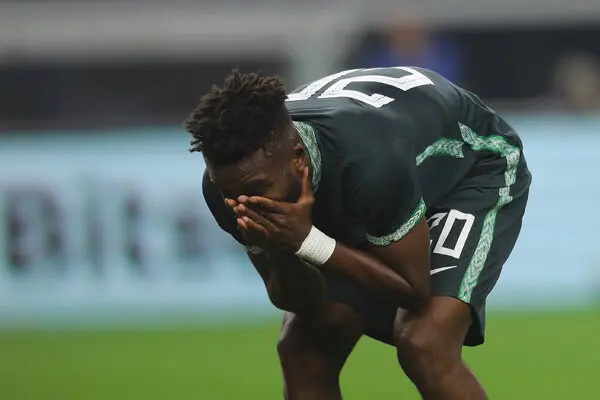Nigeria’s hopes of returning to football’s grandest stage have been shattered once more, as the Super Eagles failed to qualify for the 2026 FIFA World Cup.
The defeat marks the second consecutive World Cup miss for the three-time African champions, deepening frustration among fans and officials.
Also read: Parliament tension: Minority demands answers over punitive bail terms NPP appointees
The Super Eagles began the qualifiers with renewed confidence, determined to correct the mistakes of their previous campaign. But their aspirations collapsed in the final playoff round after a tense showdown with DR Congo, ending in a dramatic penalty shootout loss that stunned players and supporters across the nation.
This setback echoes the heartbreak of 2022, when Nigeria missed out on the Qatar World Cup after losing their playoff tie to Ghana. That defeat ended a streak of three straight World Cup appearances and signalled the beginning of a difficult rebuilding phase for the national team.
With this latest elimination, Nigeria must now confront a long wait—and a long road—before the next opportunity arrives. The 2030 World Cup qualification cycle will be the next chance for redemption, but the challenge ahead is steep.
For a nation with a rich footballing heritage, back-to-back World Cup absences serve as a stark reminder of the work required to restore the Super Eagles to global prominence. Stability, tactical direction and the ability to transform raw talent into consistent results will be crucial.
Despite the disappointment, the Super Eagles cannot dwell for long. Their next major test comes quickly—the 2025 Africa Cup of Nations, kicking off in Morocco on December 21. Rebuilding begins now.


